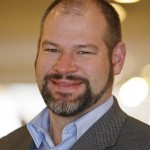We shouldn’t make assumptions
By Peter Misiaszek
 As a stewardship educator, most of my time is dedicated to teaching – and hopefully inspiring – members of our congregations to embrace a life of generosity and to enthusiastically commit to supporting the ministry of our church through their gifts of time, talent and treasure. All too often, I take for granted that most of those who receive stewardship education are familiar with church life, accustomed to Anglican worship and have been imbued with knowledge of a faith-filled upbringing. This is no longer the norm.
As a stewardship educator, most of my time is dedicated to teaching – and hopefully inspiring – members of our congregations to embrace a life of generosity and to enthusiastically commit to supporting the ministry of our church through their gifts of time, talent and treasure. All too often, I take for granted that most of those who receive stewardship education are familiar with church life, accustomed to Anglican worship and have been imbued with knowledge of a faith-filled upbringing. This is no longer the norm.
The vast majority of newcomers to our churches have never had any contact with us. They are unaccustomed to our style of worship or how our church is organized. While they may realize that the church operates thanks to the benevolence of its members, they are not familiar with how to give, what to give and how much to give. The concept of Christian stewardship is entirely removed from their life experience.
To help with the orientation, I’d like to reflect on three very broad questions: Why should I give? What should I give? How should I give? The answers to these questions can be addressed by responding to some very specific queries from newcomers.
What is stewardship?
Quite simply, stewardship is an acknowledgement that everything we have – our life, our talents, our accomplishments, our families and our material possessions – is a gift from God, and that we should cherish and tend to them in a responsible and accountable manner, sharing them with others and returning them with increase to God. We are caretakers of our gifts of time, talent and treasure.
Why should I practice stewardship?
Practicing stewardship is intimately tied up with who we are as a Christians. Stewardship is an expression of faith. It is not simply the church’s way of raising money; rather, it is a spiritual discipline that encompasses our very being as Christians. It is a radical departure from our secular understanding of charity, where we give to an external need.
What does it mean to be a Christian?
Simply put, a Christian is a follower of Christ. But more than that, it is choosing to model your life on His example. As stewards, that inclines us to be selfless, generous, gracious, humble and disciplined. Being a follower of Christ entails a lot more than simply showing up for church on Sundays; it is a lifestyle to be embraced through our thoughts, words and actions.
What does being a Christian have to do with money?
It might come as a surprise, but Jesus spoke about money more than anything else except the Kingdom of God. And while he doesn’t necessarily condemn wealth, he does caution us about its abuse, our preoccupation with it and how it changes our behaviour. For the most part, Jesus talks about giving money away – to the poor, orphans, widows, the church, and those looked down upon by society – and to avoid becoming a slave to our riches lest they become false gods in our life.
Why does the church need my money?
Giving should never be taught at church except within the context of doing ministry. The church does not need your money simply for the sake of amassing wealth. Rather, we give through the church so we can passionately support worship, outreach, pastoral care, evangelism, education and fellowship. Since our churches rely almost exclusively on the gifts of our parishioners to ensure vibrant and healthy ministry, we need the support of all our congregants.
Newcomers need to be invited to give generously to sustain our important work. They also need to learn what joy there is in giving, in addition to receiving. Church leaders do themselves no favours when they avoid conversations about money, generosity and giving. Unless we make a determined effort to educate seekers on the importance of stewardship in our church, places of work, our home and of God’s creation, we cannot expect or presume that they will know why to give, let alone how much to give. I’ll tackle that subject next month.
Peter Misiaszek is the director of the diocese’s Stewardship Development department.